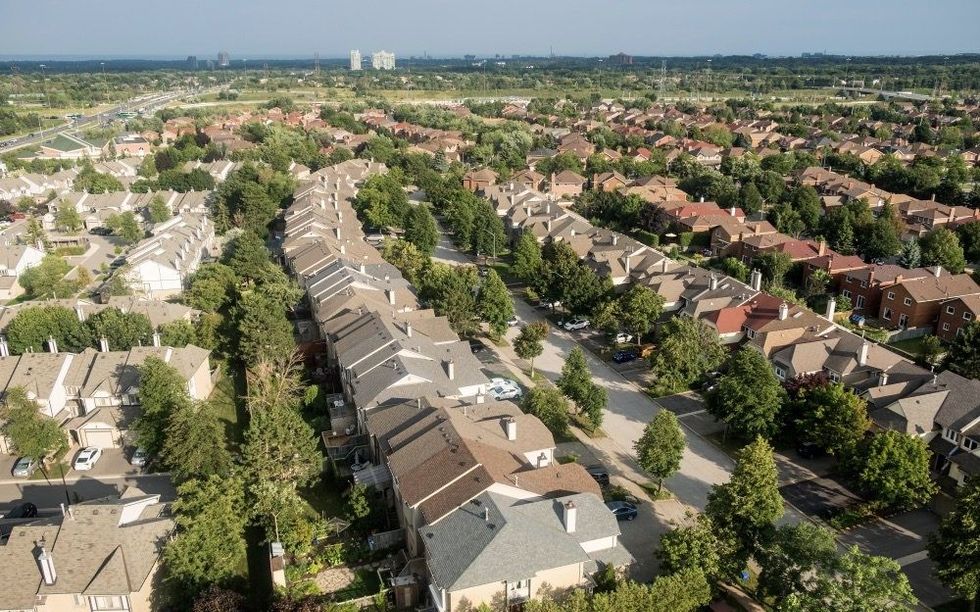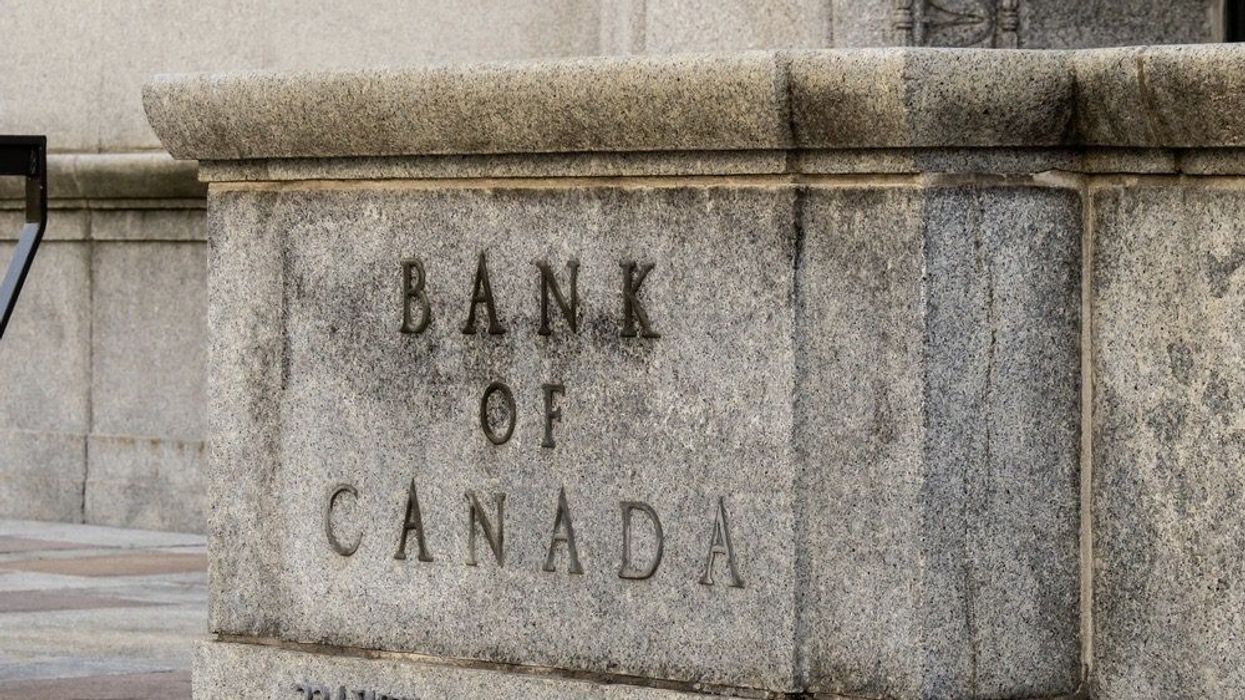The Bank of Canada is giving both everyday citizens and financial experts something to talk (or stress) about today.
This morning, Canada’s central bank surprised everyone with an interest rate hike of 100 basis points (bp) to 2.5% -- the largest interest rate increase since 1998. Bank of Canada has raised its rates by a total of 2.25% this year.
While yet another rate hike was expected, few people predicted it would be so dramatic. The widespread expectation in the eyes of experts was that it would climb by 75bp in response to rising inflation.
Not one economist from Finder’s BoC Interest Rate forecast panel in May predicted the hike of 100bp. While all economists predicted an inevitable rate increase, about three quarters (76%) believed the bank would raise the rate by 75bp -- still an aggressive amount, but one that 69% of experts thought was the right move. In fact, 18% reported that the Bank should raise the interest rate in July by 100 basis points or higher.
Still, few people thought it actually would happen. But it did -- and it could have real impacts on some homeowners and those hoping to qualify for a mortgage.
So, what exactly does this interest rate hike mean for Canadians? Not to be dramatic, but the (would-be) first-time homebuyers may want to brace themselves and act accordingly.
“Canadians should expect the prime lending rate at all financial institutions to increase by the same 100 basis points,” says James Laird, Co-CEO of Ratehub.ca and President of CanWise mortgage lender. “This means that anyone with a variable-rate mortgage or home equity line of credit (HELOC) will see their rate rise accordingly. This group should calculate what their new payment will be with this rate hike and also budget for further hikes this year.”
According to Ratehub.ca's mortgage payment calculator, a homeowner who put a 10% down payment on a $711,000 home (about the average home cost in Canada) with a five-year variable rate of 2.50% amortized over 25 years (total mortgage amount of: $659,737) has a monthly mortgage payment of $2,955. With today’s 100-basis point rate increase, the homeowner’s variable mortgage rate will increase to 3.50% and their monthly payment will increase to $3,294.
This means that the homeowner will pay $339 more per month or $4,068 per year on their mortgage payments.
Meanwhile, anyone with a fixed-rate mortgage is unaffected until their next renewal date. “If that renewal date is coming up soon, they should start to calculate their payments based on the rates available today,” cautions Laird.
The interest rate hikes also mean that it may be more of a challenge for some to qualify for a mortgage in the first place. “With this rate hike, it means that anyone getting a new mortgage, whether it is variable or fixed, will be stress tested at two percentage points higher than their contract rate,” says Laird. “For most fixed-rate borrowers, this will put their stress test at around 7% and for most variable-rate borrowers, it will put their stress test at around 6%.”
Canadians will qualify for more if they choose a variable rate over a fixed rate, advises Laird.

Both homeowners and investors have to look at the long-term when it comes to buying, selling, and adjusting their portfolios, says Elke Rubach, president of Toronto-based Rubach Wealth.
“This rate increase will not impact homeowners in the short-term as long as their refinancing of homes is not coming up soon. They will be affected if it’s coming up soon as they will need to refinance at a higher rate,” says Rubach. “As far as investors are concerned, trying to time the market is a terrible idea and if they are in the right asset mix that matches their risk tolerance, they should know that eventually, the markets will correct. If they liquidate now, it will secure the loss.”
In the current environment, Rubach stresses the importance for Canadians to have a clear budget and financial plan in place. “They should run different models with different interest rates to understand where they stand financially and how soon they will be in trouble,” says Rubach. “If they don’t know how to do it themselves, they should work with a financial advisor who will help them out. The worst thing anyone can do is navigate through these uncertain times and not get in front of the problem. It’s essential that people pay off their expenses first and then build on their opportunities to plan and protect their savings strategically. In some cases it might be worth refinancing now before rates continue to go up. I would recommend that people should not have panic reactions and move ahead with a clear financial plan.”
Moving forward, this isn’t the last we’ll see of interest rate hikes. The bank is signalling that it will continue its aggressive combat of inflation by continuing to raise rates for the remainder of the year.
"The Bank of Canada has made it clear that its primary focus is returning inflation to target and that it will be 'forceful' if need be,” said Tony Stillo, director of Canada economics at Oxford Economics on the Finder panel. “So, with CPI inflation hitting a 40-year high of 7.6% year over year in May, we now expect three more 50bp hikes will lift the policy rate from its current 1.5% level to 3% by October. This would reach the top of the Bank's 2–3% range for the neutral rate but be above our 2% estimate. In our view, this would bring rates well into restrictive territory. We then expect the Bank will reduce the policy rate to its neutral level of 2% in H2 of 2023, once it has sufficient evidence that inflation and the broader economy are slowing."
The Impact on the Housing Market
Naturally, the interest rate hikes will impact Canada’s housing market in the wake of a red-hot and often record-breaking run fuelled by the onset of the pandemic.
Finder asked its panellists where Canadian house prices would be at the end of 2022 as compared to the end of the March 2022 quarter. All except one (93%) forecast a decrease in property prices in 2022 compared to the March quarter. Just 7% of this majority calling for a decrease see it being small (5%), whereas most (43%) forecast a 10% decrease by the end of the year. The second most popular opinion is a 15% decrease by end of year, which 29% of experts predict, while 14% predict a more dramatic 20% decrease in average Canadian home prices.
“This oversized rate hike will put further downward pressure on already cool real estate markets across the country,” says Laird. “In many regions, balanced markets will transition towards buyer’s markets.”
But a buyers' market does hopeful first-time home-hunters no favours if the sky-high rates mean that they can’t qualify for a mortgage in the first place. Throw in the rising cost of rent, gas, and groceries, and the prospect of taking on a mortgage may seem a daunting one.
Given this bleak economic climate, is Canada heading for a recession? While experts are still divided on the recession risk, it seems to be more a question of when one will hit, rather than if, for the majority -- at least, according to insights from the Finder panel.
Panelist Moshe Lander, senior lecturer of economics at Concordia University, calls for a slowdown in the first half of 2023, even though he believes we may avoid the technical definition of a recession (two quarters of negative GDP). "There is no question that Canada is heading for a slowdown,” said Lander. “A slowdown/recession should be welcomed. There are a lot of imbalances that have developed trying to survive the various COVID restrictions and lockdowns. Pushing weak and inefficient businesses to sharpen up is not a bad thing and a slowdown is the best way to focus minds and finances."
Fellow panelist Charles St-Arnaud, chief economist, Alberta Central, is among those experts who don't predict a technical recession. "We are clearly heading for slower growth next year. Whether it will be a recession remains uncertain,” he says.
Rubach says the next three months will be telling ones on the potential recession front. Either way, climbing interest rates will inevitably impact the economy and the lives of countless Canadians.
"If the Bank is more cautious [about] raising rates, by stopping around 3% (3.25% in our forecast), they should be able to maintain some level of growth,” says Finder panelist Taylor Schleich, National Bank Financial rate strategist.
We'll have to wait and see (and maybe curb some spending in the meantime..).






















